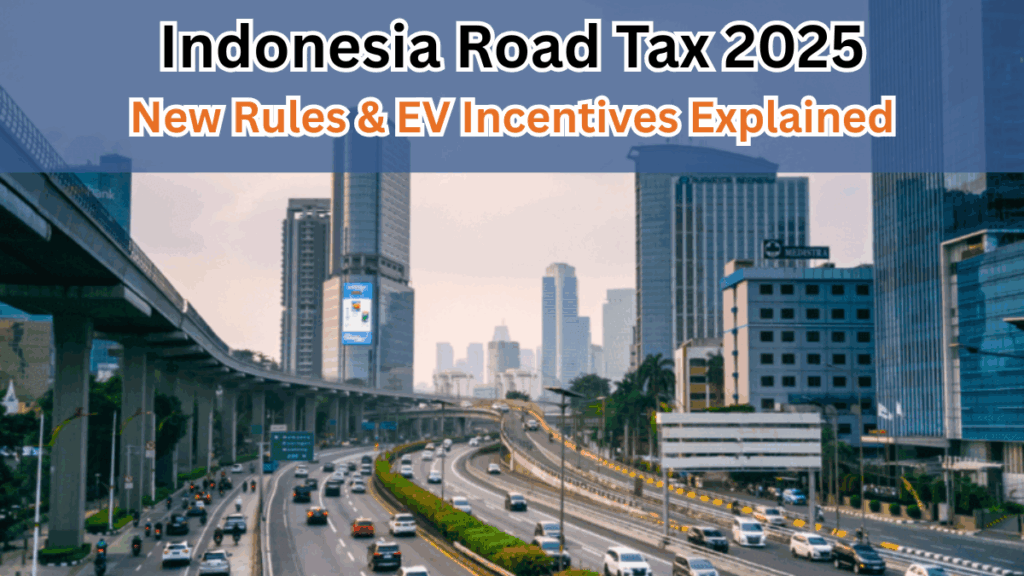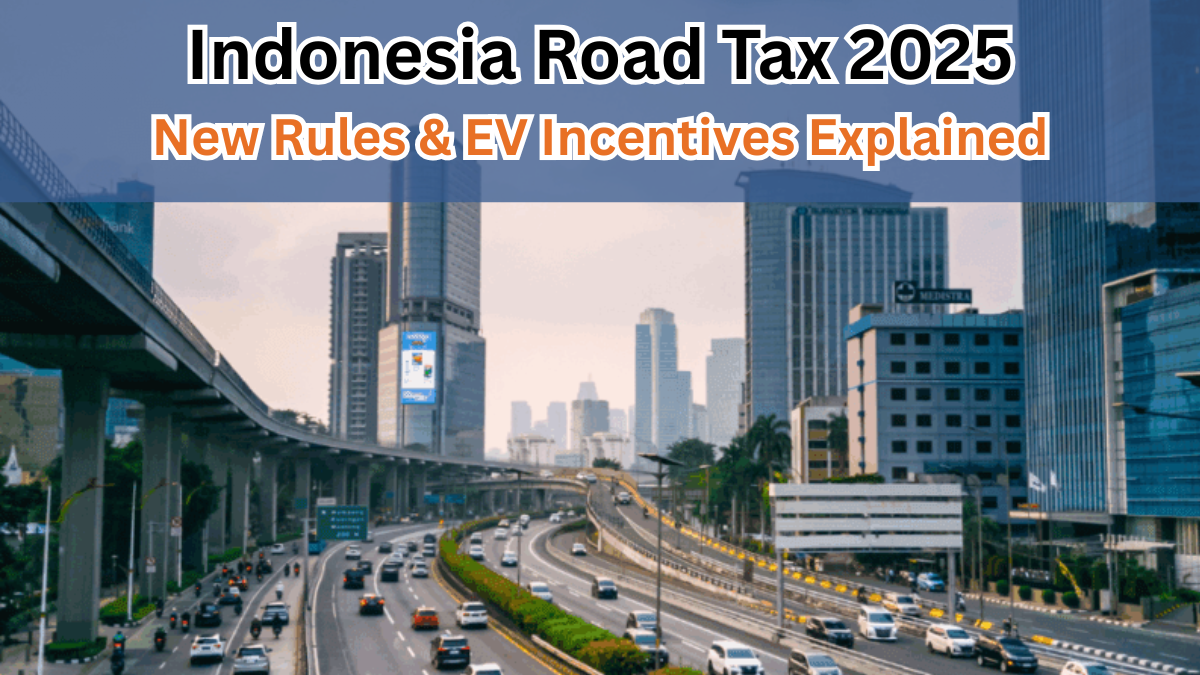As Indonesia accelerates its transition to a greener future, the government has introduced significant changes to road tax policies and electric vehicle (EV) incentives for 2025. These reforms aim to reduce carbon emissions, promote sustainable transportation, and stimulate the local automotive industry.

Key Highlights of Indonesia Road Tax 2025
The Indonesian government has implemented several measures to encourage the adoption of electric vehicles and streamline vehicle taxation:
0% Motor Vehicle Tax (PKB) for EVs
-
Battery Electric Vehicles (BEVs) now enjoy a 0% Motor Vehicle Tax (PKB), making them more affordable for consumers.
-
This policy applies to vehicles used for personal, goods, and public transportation purposes.
-
Converted vehicles from fossil fuels to electric are excluded from this benefit.
Luxury Tax Exemption for EVs
-
The government has removed the luxury tax on electric vehicles, further reducing their purchase cost.
-
This exemption applies to both locally produced and imported EVs, provided they meet certain local content requirements.
VAT Reduction to 1%
-
Value Added Tax (VAT) for electric vehicles has been reduced from 11% to 1%.
-
This measure aims to make EVs more accessible to a broader segment of the population.
Import Duty Exemptions
-
Fully imported electric vehicles now benefit from a 0% import duty until the end of 2025.
-
This policy encourages international manufacturers to introduce their EV models in the Indonesian market.
EV Incentives: Driving the Green Revolution
To support the growth of the electric vehicle sector, Indonesia has introduced additional incentives:
VAT Discounts for Low-Emission Vehicles
-
Phased VAT discount scheme for low-emission vehicles, including hybrids and EVs:
-
January–June 2025: 100% VAT discount
-
July–December 2025: 50% VAT discount
-
These incentives aim to stimulate demand and make EVs more affordable.
Import Tax Exemptions
-
Exemptions, reductions, and deferrals of import duties for electric vehicle importers starting from February 15, 2024, remaining in effect until December 2025.
-
This aligns with government policies aimed at fostering low-carbon emissions from EVs and hybrid vehicles.
Comparative Overview: Traditional vs. EV Taxation
| Tax Type | Traditional Vehicles | Electric Vehicles (EVs) |
|---|---|---|
| Motor Vehicle Tax (PKB) | Up to 30% | 0% |
| Luxury Tax | Applicable | Exempt |
| Value Added Tax (VAT) | 11% | 1% |
| Import Duty | Standard Rates | 0% (until Dec 2025) |
Looking Ahead: Indonesia’s EV Vision
With these comprehensive tax reforms, Indonesia is positioning itself as a leader in Southeast Asia’s electric vehicle market.
The government’s goal is to produce 600,000 EVs domestically by 2030, leveraging its vast nickel reserves essential for EV batteries. (reuters.com)
Frequently Asked Questions (FAQs)
1. Are converted electric vehicles eligible for the 0% Motor Vehicle Tax (PKB)?
No, only battery electric vehicles manufactured as EVs are eligible for the 0% PKB. Converted vehicles from fossil fuels to electric are excluded. (muc.co.id)
2. How long will the VAT reduction to 1% for EVs last?
The VAT reduction is part of the government’s ongoing efforts to promote electric vehicles. While the current rate is set at 1%, it is advisable to stay updated with official announcements for any future changes.
3. Do imported EVs qualify for the 0% import duty?
Yes, fully imported electric vehicles benefit from a 0% import duty until the end of 2025, provided they meet the necessary criteria.
4. Will these tax incentives continue beyond 2025?
The current incentives are set to expire in 2025. However, the government is continuously evaluating measures for incentives for green vehicles, such as EVs, hybrids, and hydrogen fuel vehicles. (afma.org.au)
These reforms mark a significant step towards a sustainable and eco-friendly transportation future in Indonesia. By making electric vehicles more accessible and affordable, the government aims to reduce carbon emissions and promote green innovation.
Click here to learn more
